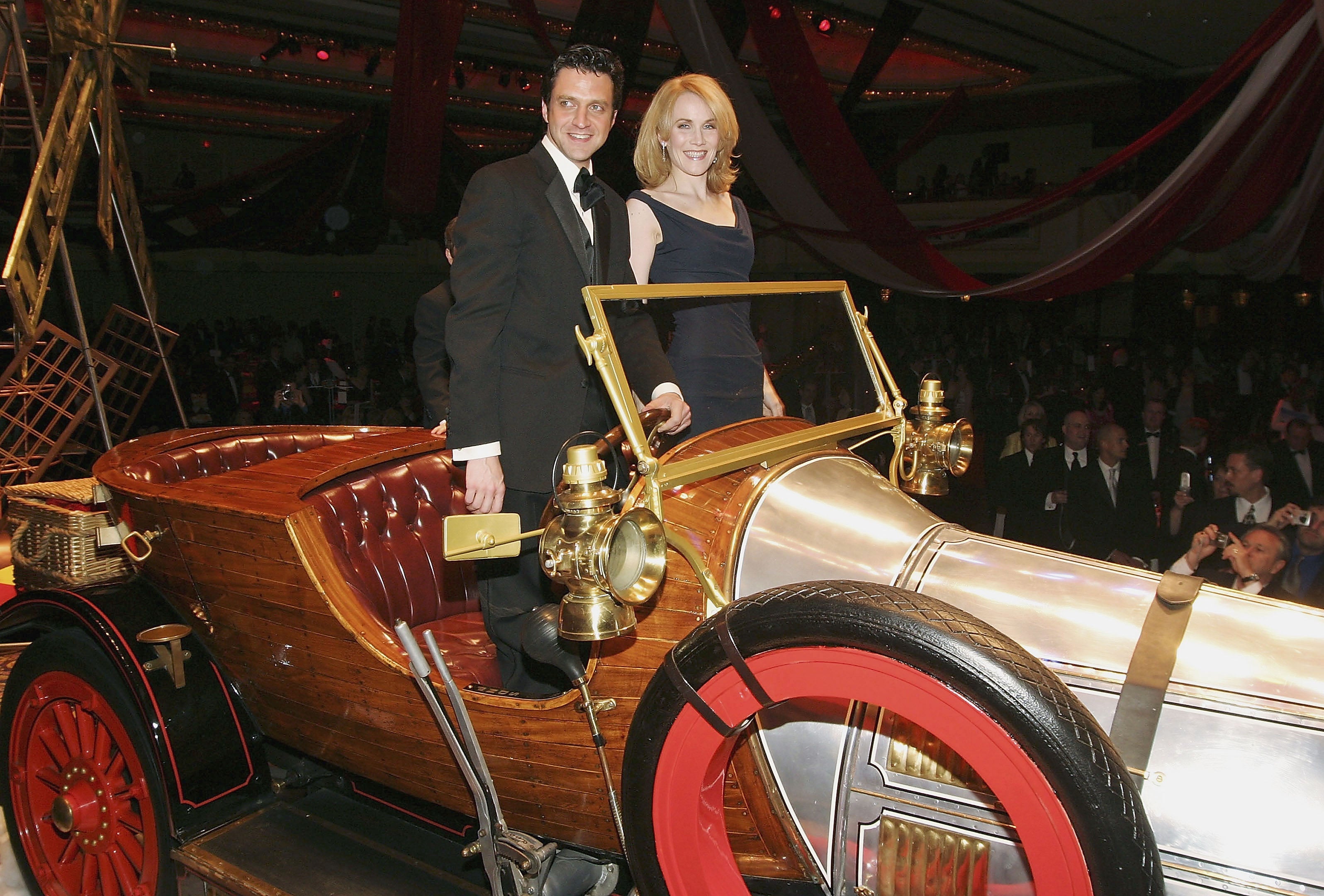13 of the biggest Broadway flops in history, from Elton John’s Tammy Faye to Spider-Man: Turn Off The Dark
As Elton John’s musical ‘Tammy Faye’ announces it is to close just days after opening, Kevin E G Perry looks back at some of the biggest Broadway productions that failed to break even
Your support helps us to tell the story
From reproductive rights to climate change to Big Tech, The Independent is on the ground when the story is developing. Whether it's investigating the financials of Elon Musk's pro-Trump PAC or producing our latest documentary, 'The A Word', which shines a light on the American women fighting for reproductive rights, we know how important it is to parse out the facts from the messaging.
At such a critical moment in US history, we need reporters on the ground. Your donation allows us to keep sending journalists to speak to both sides of the story.
The Independent is trusted by Americans across the entire political spectrum. And unlike many other quality news outlets, we choose not to lock Americans out of our reporting and analysis with paywalls. We believe quality journalism should be available to everyone, paid for by those who can afford it.
Your support makes all the difference.In Mel Brooks’s classic 1967 satire The Producers - later adapted into a wildly successful Broadway show itself - the scheming Max Bialystock and Leo Bloom plot to get rich quick by overselling shares in their next musical and then purposefully staging a flop. They deliberately seek out what Bialystock calls: “a disaster, a catastrophe, an outrage! A guaranteed-to-close-in-one-night beauty!”
In reality, of course, inadvertently staging a flop on Broadway is a good way to lose a lot of money fast. Elton John found that out the hard way in November, when his televangelist musical Tammy Faye announced its closure just five days after opening. According to reports, the show is set to lose the entirety of the $25m it cost to stage it. That’s still not enough to make it the biggest flop in New York theatre history. Here are some of the biggest disasters, catastrophes and outrages ever to hit Broadway:

Via Galactica (1972)
Via Galactica told the futuristic story of a bunch of social outcasts living on an asteroid in outer space in the year 2972. The plot was so utterly incomprehensible that at the last moment, producers decided to insert a plot synopsis into the Playbill programs, but even then audiences remained baffled by what was unfolding on stage. It closed after 15 previews and seven performances, in the process becoming one of the first Broadway musicals to lose more than $1m.
Tammy Faye (2024)
The story of televangelist Tammy Faye Bakker was brought to Broadway by an all-star team, with music by Elton John, lyrics by Jake Shears of the Scissor Sisters and a book by Dear England playwright James Graham. That wasn’t enough to deliver it to salvation, and the musical is set to close on December 8 after just 24 previews and 29 regular performances. The New York Post called it “a disaster of biblical proportions.”
Lestat (2006)
Tammy Faye wasn’t Elton John’s first bitter taste of Broadway failure. Back in 2006, he and his longtime collaborator Bernie Taupin worked together on a musical inspired by Anne Rice's The Vampire Chronicles. It fared only slightly better than Tammy Faye, opening on March 25, 2006 and closing on May 28, 2006 after 33 previews and 39 performances. Washington Post critic Peter Marks opined that “Lestat’s contribution to art and equality is demonstrating that a gay vampire with a two-octave range can be just as dull as a straight one.”
Drat! The Cat! (1965)
This musical about a Gilded Age catgirl who becomes a jewel thief before stealing the heart of the police officer trying to arrest her lasted just eight days on Broadway. Ira Levin, who wrote the book and lyrics, had originally intended to call the show Cat and Mouse until the Nobel Prize-winning author Günter Grass published a book of the same name. Levin felt the new title didn’t help the show’s chances. “I didn’t like it then, I don’t like it now,” he wrote in 2005. “Several critics didn’t like it either. (More advice for young playwrights: Never use two exclamation points in a title. One, you can get away with; two, no.)”

Rocky the Musical (2014)
If you’ve ever watched Sylvester Stallone slugging it out in the ring and thought: ‘I just wish he’d break out into song,’ then this was the show for you. After initially debuting to positive reviews in Hamburg, Rocky the Musical transferred to Broadway in 2014. No expense was spared as the production ran up $20m in costs, including $4.3m for the elaborate stage set alone (a full-size boxing ring slid out over the stalls, requiring those in the front rows to move around to bleachers at the back for the last 20 minutes). The staging won a Tony award, and leading man Andy Karl was nominated for Best Actor, but in the end, sluggish sales delivered a knockout blow to Rocky after just 28 previews and 188 performances.
Kelly (1965)
Kelly was a musical with an unusual inspiration: the story of Steve Brodie, who in 1886 claimed to have jumped off the Brooklyn Bridge and survived. If you think that’s an unlikely plot for a Broadway musical, audiences agreed. The show closed immediately after its opening night and lost $650,000 - a record loss for the mid-1960s. Industry insiders told The New York Times that they “could not recall any other Broadway musical representing such a comparable expenditure that became a casualty so quickly.”
Pipe Dream (1955)
By 1955, musical-writing team Rodgers and Hammerstein could have been forgiven for thinking themselves untouchable. In the previous dozen years they’d created a string of indelible classics, including Oklahoma!, Carousel, South Pacific and The King and I, yet even that incredible track record couldn’t keep them immune from their very own Broadway flop. Pipe Dream, based on John Steinbeck's novel Sweet Thursday, turned into a financial disaster. Despite record advance ticket sales ahead of its opening in November 1955, poor reviews and word-of-mouth damned the show and it was closed by June 1956.

Chitty Chitty Bang Bang (2005)
Chitty Chitty Bang Bang, based on Roald Dahl’s film adaptation of James Bond author Ian Fleming’s beloved children’s book, made sure it got one thing right: the car at the center of the story actually flew. Plenty of theatrical magic was employed to ensure Chitty Chitty Bang Bang soared over the first few rows of the audience, but sadly the rest of the show was less impressive. The New York Times noted that the songs sounded “not unlike what you might hear in sing-along hour in a pre-K class.” It closed after 34 previews and 285 regular performances, and producer Nicholas Paleologos noted with some understatement that “a substantial portion of the $15m (initial investment) will not be recouped on Broadway.”
Bring Back Birdie (1981)
The 1960 musical Bye Bye Birdie, with music by Charles Strouse, lyrics by Lee Adams, and a book by Michael Stewart, was a runaway success, winning Tony Awards and spawning a hit movie version. When the original creative team reunited in 1981 for a sequel, Bring Back Birdie, they must have smelt easy money. Instead, they produced a flop that closed after just 31 previews and four performances. In his book Not Since Carrie: Forty Years of Broadway Musical Flops, theater historian Ken Mandelbaum wrote that the show “may rank as the worst Broadway musical ever to be created by top-level professionals.”
Moose Murders (1983)
This “mystery farce” by playwright Arthur Bicknell has the distinction of having run for just one single performance (after an unlucky 13 previews) on the night of February 22, 1983. It has since become a touchstone for notorious Broadway flops, with New Yorker art critic Brendan Gill writing that the play "would insult the intelligence of an audience consisting entirely of amoebas." The New York Times critic Frank Rich called it "the worst play I've ever seen on a Broadway stage", while The New York Post‘s Clive Barnes said it was “so indescribably bad that I do not intend to waste anyone’s time by describing it.”

Breakfast at Tiffany’s (1966)
This adaptation of Truman Capote’s novel arrived on Broadway just five years after the much-loved Audrey Hepburn film version and left even faster. The show didn’t even ever officially open: it lasted just four previews before closing. Producer David Merrick took the financial loss and even went so far as to place an infamous ad in The New York Times to announce that he had charitably decided to shut down the production “rather than subject the drama critics and the public to an excruciatingly boring evening.”
Carrie (1988)
A decade after Brian De Palma’s chilling film adaptation of Stephen King’s horror classic, bringing Carrie (plus buckets of blood) to Broadway must have seemed like an easy win. Instead, it turned into the wrong kind of horror show. It cost $8m, a huge sum in the late 1980s, and ran for just 16 previews and five regular performances before closing. The New York Times sneered: “As the film director Brian DePalma demonstrated in his screen adaptation, Carrie can make for scary, funny and sexy pulp entertainment – provided the thrills, wit and post-pubescent sensuality are as sharp as that knife. The musical Carrie fails in all these areas.”
Spider-Man: Turn Off The Dark (2011)
Throw together a popular, New York-based superhero franchise, Tony Award-winning The Lion King director Julie Taymor and music by U2’s Bono and The Edge and what could possibly go wrong? Well, plenty. Spider-Man: Turn Off The Dark endured a famously tortured journey to the stage, which included several injured cast members and one near-fatality when a stuntman fell 30 feet and broke several ribs. Then there was the spiraling cost, which ended up at an eye-watering $75m, more than any other Broadway show in history. That was all before a review was even published, at which point The Independent reported that critics seemed to be suffering from arachnophobia. Constant overhauls saw a record 182 preview performances before it even officially opened. Somehow the show did end up running for three years but never came close to earning back its astronomical costs.

Join our commenting forum
Join thought-provoking conversations, follow other Independent readers and see their replies
Comments